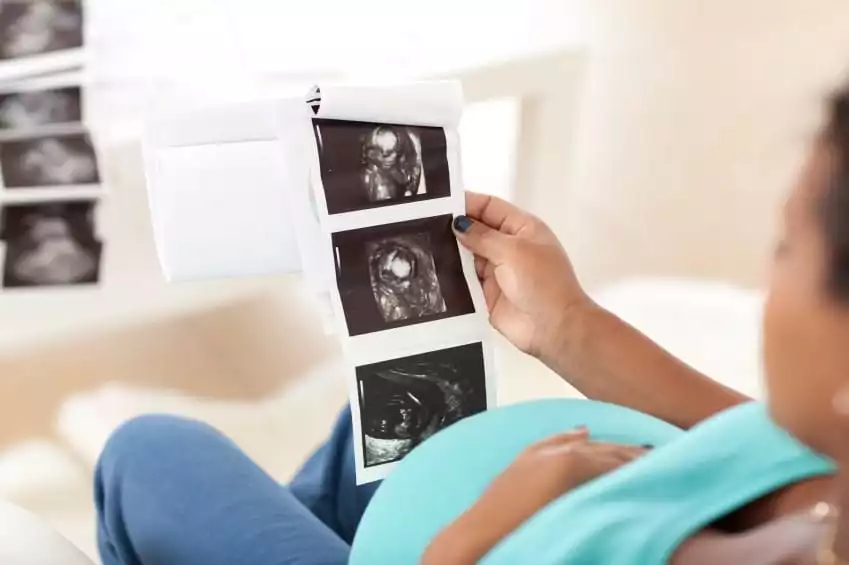
July is GBS Awareness month (also called Group B strep), so this month, we will explore Group B strep antibiotics, infection, prevention and treatment.
The first encounter most patients have with Strep B is during pregnancy; it’s common for doctors to test for, and treat, the disorder just before someone goes into labor. But what exactly is this disease, and how worried should you be about contracting it?
In honor of Group B Strep Awareness Month and this opportunity to spread awareness, we’ll answer important questions like these right here.
What Exactly Is Group B Strep?
Group B streptococcus (GBS) is a bacterial infection caused by Streptococcus agalactiae germ. S. agalactiae is normally found in and around the vaginal tract, intestines, rectum, and anus.
Like most naturally colonizing germs, including yeast, it is fairly normal to find S. agalactiae on the human body. Around 25 percent of all women carry it from an early age without any repercussions.
As a general rule GBS isn’t usually harmful as long as your immune system keeps it in check and prevents it from overproducing.
For a variety of reasons, some people experience a spike in S. agalactiae germs during pregnancy or when the immune system is low. When this happens, the patient is said to be suffering from Group B strep infection.
Being diagnosed with GBS does not mean you will become sick, nor does it mean your baby will become sick – but it does mean you’ll need to take special precautions to ensure safety.
We’ll talk more about those precautions in a bit.
How Does Someone Get Group B Strep?
As mentioned previously, up to a quarter of all women carry GBS from an early age. Others contract it later in life. Researchers don’t really understand where GBS comes from, but do not believe it is contagious person-to-person from everyday interactions alone.
It doesn’t spread through water, air droplets (e.g., sneezing) or food, either, so you don’t need to worry about contracting GBS just by simply existing!
Health Issues for the Baby
While GBS isn’t exactly contagious, a mother can pass it on to her baby if she is infected at the time of her pregnancy. Infants who contract Strep Group B are at risk for a whole host of problems, including:
- Fever
- Breathing problems
- Pneumonia
- Sepsis
- In rare cases, meningitis
Health Issues for the Mother
In other rare cases, GBS may also cause health problems in the mother, especially if she is immunocompromised other otherwise ill. When it does, the mother may experience:
- Urinary tract infections
- Placental abruption or infection
- Uterine infections
- Amniotic fluid infections
Women with certain heart, liver, kidney, or gastrointestinal infections may be at a higher risk for these complications.
Frustratingly, the symptoms of GBS in infants don’t always manifest right after labor, and the majority of mothers don’t have symptoms, either. Some infants never show signs, while others become sick later up to three months after they come into the world.
It is far easier to prevent GBS than to treat it after the fact. This is exactly why doctors and obstetricians generally test for the germ during routine prenatal care.
How Is GBS Diagnosed?
Testing for GBS is very simple. Your physician or care team will take a quick swab from the vaginal cavity, usually during a routine check or assessment.
The swab is then sent to a lab to be cultured; after a short period of time, technicians can identify whether the S. agalactiae germ exists.
Doctors may use the same swab to identify if you are infected with other germs, such as candida or staphylococcus aureus, especially if you have been struggling with rashes or uncomfortable symptoms. If they find evidence of GBS or any other infection, they’ll provide you with options for treatment.
What Are Group B Strep Treatment Options?
Group B strep is almost always treated if and when it is detected in pregnant mothers. It may or may not be treated if detected in someone who is otherwise healthy and who isn’t currently pregnant.
In pregnant women, GBS is most often treated using IV antibiotics like penicillin. These drugs destroy the germ and/or render it harmless. The body then clears it like any other routine waste.
This process works best if the mother receives IV antibiotics at least four hours prior to giving birth. However, it can be given at virtually any point in time.
When Is It Treated?
Doctors generally only treat for GBS in pregnant women if they have a positive test result. However, there are certain cases where a physician may prescribe prophylactic antibiotics even before testing:
- When there isn’t time for testing (e.g., premature labor)
- If labor extends for more than 18 hours (especially after the water breaks)
- When the mother has a fever not otherwise attributed to other causes
- If the mother has had GBS-related problems in the past
Infants are immediately tested for GBS right after birth. If they test positive, they will be given IV antibiotics promptly to fight the germ.
It is imperative to take these drugs as soon after labor as possible to prevent the very serious issues associated with neonatal GBS infection.
If an infant develops symptoms associated with GBS, doctors will usually provide supportive care (e.g., breathing help) and continue antibiotics. The good news is that most infants recover from GBS just fine with the right support.
The best way for you to protect your child is to be tested early and follow all of your care team’s instructions from the moment you test positive.
How Your Pharmacy Can Help
Have questions about Group B strep? Your local pharmacist is a great resource on this and many other pre and neonatal conditions.
If you test positive for Group B, they may even be able to help you with filling oral prescriptions for medications to eliminate the germ early. This is the best way to protect you and your baby.
With the right information, there’s no need to fear GBS or any other germ-related infection associated with pregnancy and your new baby’s health.
From good advice on personal hygiene to identifying your personal risk factors for GBS, help is only a telephone call away.

 info@burtsrx.com
info@burtsrx.com

